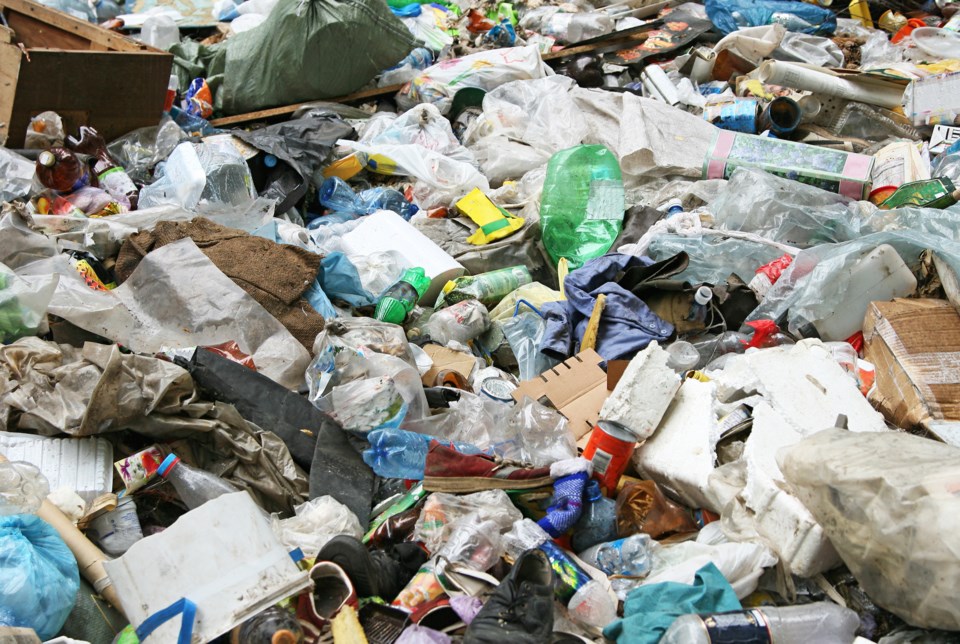The City of Thunder Bay has made modest progress in reducing the amount of material going to its landfill site while increasing the amount of waste that's being recycled.
Figures obtained by tbnewswatch.com show that in 2015, the Mapleward Road landfill accepted a little less than 96,000 tonnes of garbage, a drop of about four per cent from the average amount in recent years.
"In the last couple of years, we're seeing a trend where volume is slowly dropping, which equates, I think, to more people diverting waste in the community," said Jason Sherband, the city's manager of solid waste and recycling services.
Statistics supplied by the city show that sanitation trucks collected 2300 metric tons of waste less in curbside pickups between 2013 and 2015. The volume of recycled materials collected in blue bags or dropped off by citizens at the landfill site increased by about two per cent over the same period.
Sherband attributes the trend to the overall success of diversion programs including electronic waste, household hazardous waste, leaf and yard waste, and blue bag and depot-based recycling.
"We've really made a push over the last number of years with our promotion and education campaigns ... and trying to develop new programming to really get people in that mindset."
He also points to the value of in-school recycling education.
"We've really developed it from the grassroots level ... when I go into schools now and see some of the great work that's happening...Those kids are bringing that home to their parents so it's having a positive affect overall in the community."
The provincially-established target of diverting 60 per cent of waste from landfill sites remains a challenge. Some cities in southern Ontario have had more success moving toward that target, but Sherband is reluctant to make comparisons. He said that other municipalities "may have different programming than we have...When we developed our solid waste management strategy [approved by city council in 2014] we sort of had incremental changes that would happen along the way as different programs get developed, and that's our guiding document as we move forward."
Help is on the way in the form of new provincial legislation that targets producers and encourages them to turn more of their waste into new products. It also envisages a plan to reduce the amount of organic materials going into landfills, and promotes recycling in the business and institutional sectors.
Sherband expects that, in conjunction with these measures, "there will be new targets, and whether that's geographical or how that's going to work, we're in a kind of a wait-and-see approach over the next little while to see what those new regulations are."
He also believes the legislation will help the city in its efforts to increase recycling of things such as more grades of plastic, which local citizens identified as a goal during public consultation. While at present each municipality takes a different range of products depending on location and marketing issues, "What is going to stem from this is, I think, more of a harmonized approach across the province where Municipality "A" and Municipality "B" are taking the same things."
Sherband said he still feels that Thunder Bay has made important strides over the last few years. "I'm proud of what we've accomplished. We've got a long way to go but we have moved the yardsticks."
